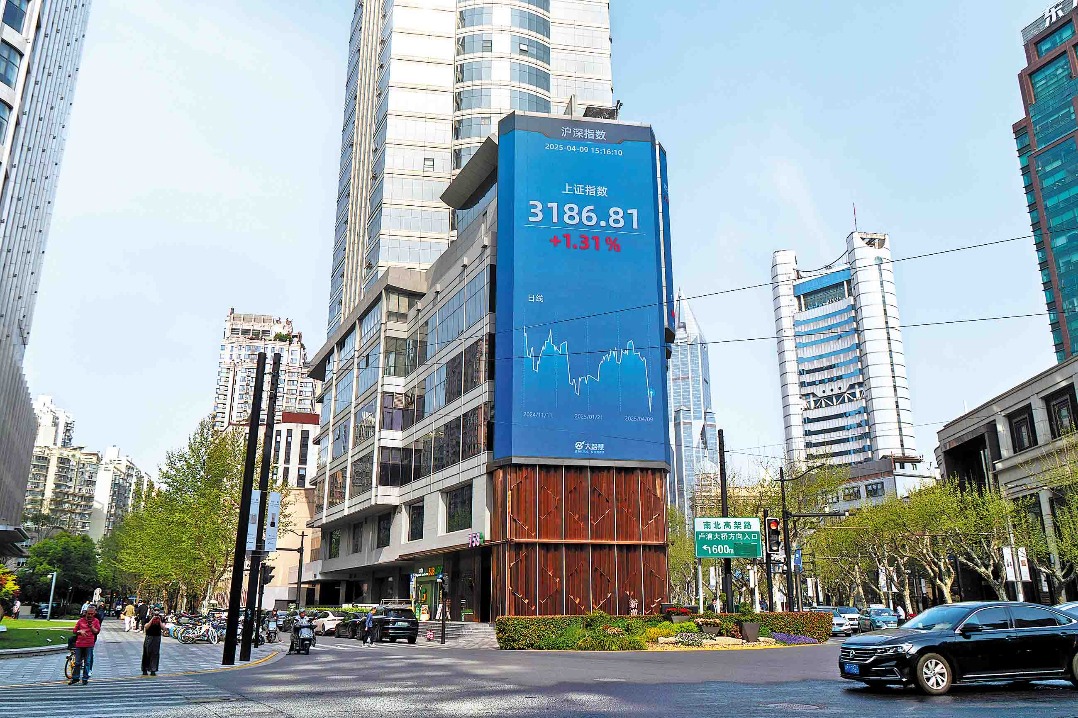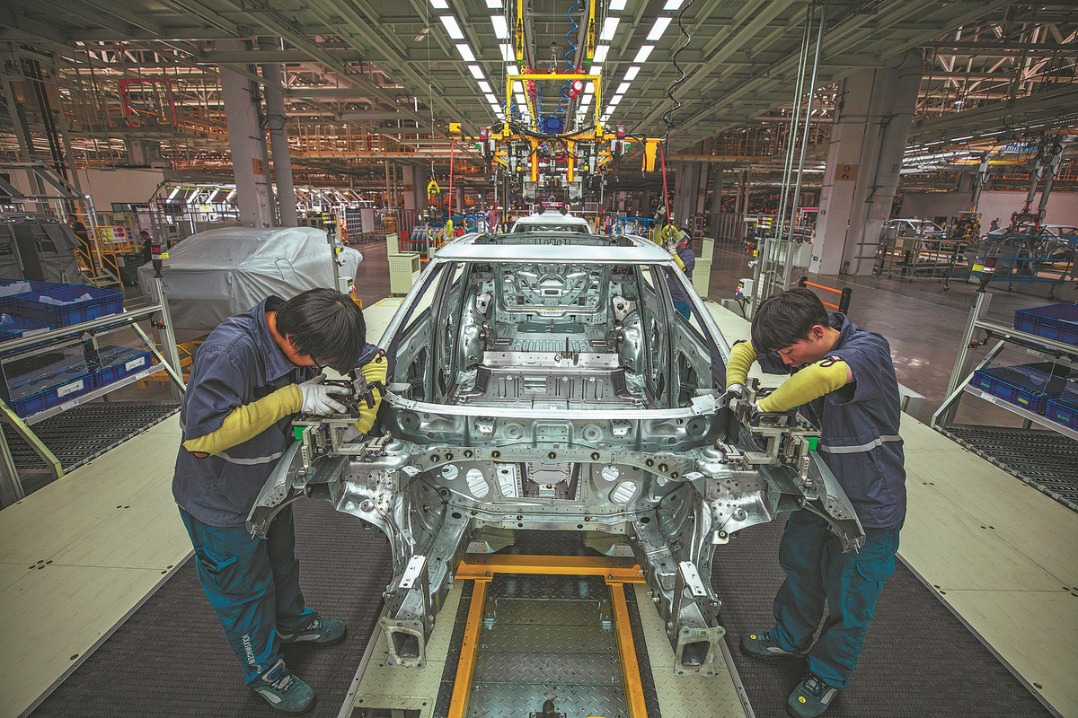'Red vs yellow' a milestone of e-commerce


The past spring witnessed a dramatic corporate battle in China's internet sector. The ongoing "red vs yellow war", a showdown over instant retail between tech giants JD.com and Meituan, has transcended ordinary business competition. How this textbook case of rivalry ends will greatly impact the future of e-commerce in China.
That is why the relevant authorities have recently summoned major food delivery platforms including JD.com and Meituan, to address prominent issues related to competition in the food delivery sector. They called on the platforms to comply with laws and regulations, fulfill their social responsibilities, engage in fair and orderly competition, and safeguard the rights and interests of consumers, merchants, and delivery riders. The initiative is clearly aimed at promoting the regulated, healthy, and orderly development of the platform economy.
From marketplaces in the past to department stores of modern times, and from traditional retail to e-commerce, market competition has marked every evolution of commercial societies. Like all business wars, the clash between JD.com and Meituan, symbolized by the red and yellow uniforms of their delivery personnel, began with a fight for market share. However, the escalation and prolonging of the clash has likely exceeded even the competitors' initial expectations.
For Chinese people, JD.com and Meituan are household names, integrated into their daily life in the form of a pack of batteries or a box of fried rice. JD.com, a heavy-asset e-commerce platform centered on supply chains, and Meituan, a light-asset platform focused on hyper-local services, once operated within clear boundaries despite both being logistics-driven enterprises.
However, industry insiders had predicted long ago that a collision between the two was inevitable. The cross-boundary rivalry between traditional e-commerce and hyper-local services is less about stealing each other's cheese and more about mutual catalysts, akin to the catfish effect.
Over the years, Meituan has been creating a half-hour local life service circle based on its dominance in the food delivery sector while JD's intelligent delivery network shares the underlying logic of instant delivery. In the fields of instant retail and food delivery, the two have discovered overlapping channels in their respective tracks.
Meituan's instant delivery delivering nearly 80 million orders per day inevitably erodes consumers' "stockpile shopping" habits. Goods sold on conventional e-commerce sites can be delivered as fast as ordered food. In contrast, JD's "next-day delivery" is losing luster, along with its once-proud warehouse-centric system, which is less of a strength in the era of instant gratification.
With logistics growth plateauing and core categories such as home appliances and daily essentials facing pressure, the trillion-yuan instant retail market, boasting more than 50 percent annual growth, has become a battleground.
Shortly after Spring Festival, JD.com fired the first shot to launch its food delivery service with aggressive campaigns, including a viral stunt where company chairman, Liu Qiangdong, personally delivered orders to customers' doorsteps. Meituan countered with its "moat project". Months of clashes have escalated into a war, now seen as redefining next-generation local lifestyle infrastructure.
As management theorists say, true competition isn't about slicing the pie but reshaping it. Each move in this battle is in a sense rewriting retail's DNA, reconstructing internet ecosystems, and redrawing social consumption patterns. So far, positive shifts have emerged for China's 545-million-user instant delivery market.
First of all, the technological arms race served to lift industries' productivity. Algorithmic duels now occur at millisecond precision. JD's 28-minute delivery record relies on AI dispatching systems processing thousands of real time variables, with below-300-meter accuracy; Meituan's annual 20 billion yuan R&D-backed "30-minute guarantee" uses similar optimization.
The most visible progress lies in the advancement of labor rights and interests. While the number of platform couriers nationwide exceeded 10 million in 2023, poor social insurance coverage remains contentious. Metrics like order volume and timeout rates once crushed riders, with frequent accidents. Now, the companies have begun to compete on riders' welfare, expanding insurance, healthcare and pension contributions, setting new industry benchmarks.
At the same time, as fee reduction brings relief to merchants, consumers enjoy punctuality and discounts. Nevertheless, requirements for physical store registration and ensuring food safety could catalyze healthier industry standards if widely adopted.
Yet risks loom. Rising operational costs and related stock dips hint at investors being fearful of a return to profit-sacrificing "burn-money wars", a recurring theme in the history of the internet, albeit a competition-driven industry, where reckless expansion often ends in lose-lose scenarios.
The public now hopes the "red-yellow war" will evolve into a competition for corporate responsibility, prioritizing fairness over capital overreach, rather than repeating old mistakes.
The author is chief researcher at the China Watch Institute, China Daily.































